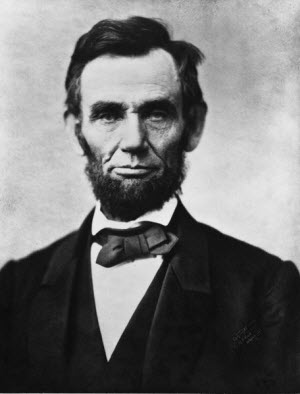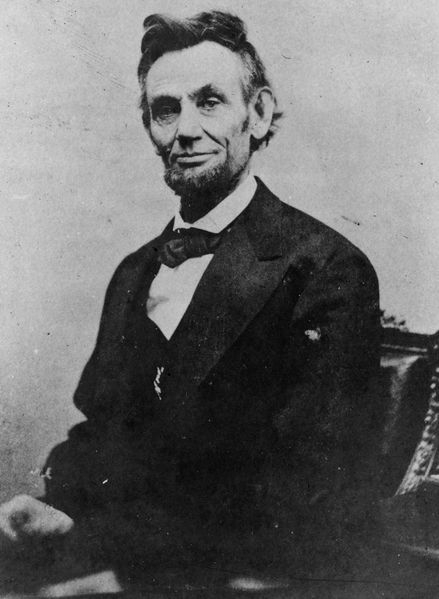Frederick Douglass told, in these words, of his first interview with President Lincoln:
"I approached him with trepidation as to how this great man might receive me; but one word and look from him banished all my fears and set me perfectly at ease. I have often said since that meeting that it was much easier to see and converse with a great man than it was with a small man.
"On that occasion he said:
"'Douglass, you need not tell me who you are. Mr. Seward has told me all about you.'
"I then saw that there was no reason to tell him my personal story, however interesting it might be to myself or others, so I told him at once the object of my visit. It was to get some expression from him upon three points:
"1. Equal pay to colored soldiers.
"2. Their promotion when they had earned it on the battle-field.
"3. Should they be taken prisoners and enslaved or hanged, as Jefferson Davis had threatened, an equal number of Confederate prisoners should be executed within our lines.
"A declaration to that effect I thought would prevent the execution of the rebel threat. To all but the last, President Lincoln assented. He argued, however, that neither equal pay nor promotion could be granted at once. He said that in view of existing prejudices it was a great step forward to employ colored troops at all; that it was necessary to avoid everything that would offend this prejudice and increase opposition to the measure.
"He detailed the steps by which white soldiers were reconciled to the employment of colored troops; how these were first employed as laborers; how it was thought they should not be armed or uniformed like white soldiers; how they should only be made to wear a peculiar uniform; how they should be employed to hold forts and arsenals in sickly locations, and not enter the field like other soldiers.
"With all these restrictions and limitations he easily made me see that much would be gained when the colored man loomed before the country as a full-fledged United States soldier to fight, flourish or fall in defense of the united republic. The great soul of Lincoln halted only when he came to the point of retaliation.
"The thought of hanging men in cold blood, even though the rebels should murder a few of the colored prisoners, was a horror from which he shrank.
"'Oh, Douglass! I cannot do that. If I could get hold of the actual murderers of colored prisoners I would retaliate; but to hang those who have no hand in such murders, I cannot.'
"The contemplation of such an act brought to his countenance such an expression of sadness and pity that it made it hard for me to press my point, though I told him it would tend to save rather than destroy life. He, however, insisted that this work of blood, once begun, would be hard to stop--that such violence would beget violence. He argued more like a disciple of Christ than a commander-in-chief of the army and navy of a warlike nation already involved in a terrible war.
"How sad and strange the fate of this great and good man, the saviour of his country, the embodiment of human charity, whose heart, though strong, was as tender as a heart of childhood; who always tempered justice with mercy; who sought to supplant the sword with counsel of reason, to suppress passion by kindness and moderation; who had a sigh for every human grief and a tear for every human woe, should at last perish by the hand of a desperate assassin, against whom no thought of malice had ever entered his heart!"
Abraham Lincoln | Events | People | Abraham Lincoln Quotes |
Quotations About Abraham Lincoln | Abraham Lincoln Photo Gallery | Abraham Lincoln Timeline |
Privacy Policy | About Us | Site News | Site Map |
Anecdotes and Stories About Abraham Lincoln


